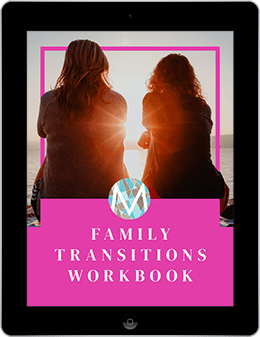Working as a financial advisor to women is incredibly rewarding. Helping women realize their own truths about their financial lives and witnessing the ensuing transformation is one of the main reasons I love what I do!
It’s often said that women are more emotional than men, and that this is likely to have a negative effect on their ability to manage their money. Emotional decisions can’t be good ones, right? Emotions and finances should be kept in separate rooms. Actually, it’s when emotions and finances join forces that real money sensibility can kick in.
Are Emotional Decisions Necessarily Bad?
It’s a long-held, internalized belief that emotions and finances don’t mix because emotional decisions are irrational. In our financial lives, emotional decisions are associated with impulse purchases led by persuasive advertising, or the need for a bit of retail therapy. But in fact, recent studies have noted that social scientists, psychologists, philosophers and even economists are agreeing that emotions form the very backbone of rational decision making.
It may even be the case that emotions are there for that very reason. Fear makes us avoid dangerous situations. Disgust helps us avoid toxic things that might damage our health. Love creates hugely valuable social bonds. So, some might say that emotions are the root cause of all rational decisions.
But the key to making sure emotions lead to rational decisions lies in self-reflection. It lies in awareness of those emotions, and your responses to them. Michael Kitces points out, with reference to a book on the subject, that unlocking your emotions and accessing your emotional brain helps you to become more aware of emotional drivers for decisions.
While this book was written for psychologists and counselors to help people make sense of their personal lives, Kitces says this is just as valuable for anyone reviewing their financial management. Looking at emotional drivers and fully understanding them can protect you from costly financial mistakes.
Emotions and Finances – Can They Ever Truly Be Untangled?
Unfortunately, it is often at really emotional times of our lives that we need to make some significant financial decisions. It’s when our kids leave the nest and our house feels empty. It’s during a difficult divorce, It’s after the loss of a loved one. Or it’s during the exciting, frenetic time of starting a business. During these transitions, before we make life-changing decisions, we need to have a clear understanding of where our emotions are playing a role.
We need to be able to steer a clear path through turbulent times. So being more emotional, in the sense of being aware of how we are feeling, is vital. And we can do this through self-reflection, and looking at our financial habits.
By acknowledging our emotions, we can accommodate them, build them into our financial plan, and we can account for them. We can see where they are causing us to go astray and, equipped with that greater emotional understanding, we can build good money habits around them.
Let Your Emotions Act As Signposts, Not Drivers
Concluding that it is unhealthy to link personal values, emotions and finances is unfounded. I’ve said it before and I’ll say it again: acknowledging our personal values as well as our emotions is a very important part of managing our finances well. And letting your emotions guide some of your decision making can help you to choose a path that is right for you. Looking at our values and our emotions can tell us a lot about the parts of our lives we’d like to change and the goals that we would like to achieve.
Take this personal example from a client of mine. Years after a divorce, she felt a nagging sense of unhappiness. She couldn’t really put her finger on it. She’d put on a bit of weight, and had become sluggish. Having been previously active and proud of her appearance, this new version of herself simply made her feel sad. Just acknowledging this emotion was the key that she needed to unlock the door to a re-found happiness.
She analyzed her cash flow. Since her divorce, her grocery bills had stayed the same. She was, in essence, eating for two. She didn’t spend money on socializing; she was spending it on TV subscriptions. By cutting her budget for groceries and allocating money to a golf club membership, she achieved three goals at once. She was suddenly much more active, fitting into her favorite clothes again, and she was socializing three times a week. I saw her readjust her finances just ever so slightly, and I witnessed her newfound confidence and optimism.
Imagine the power of those decisions on an even grander scale. Imagine the full potential of aligning your emotions and your values with your finances.
Emotions and Investing
OK, OK, so if you’re a regular reader of my blogs, you might think I’m contradicting myself a little. After all, I just told you that women are good investors because they don’t make emotional decisions when deciding to buy or sell stocks. That’s not entirely true. The truth is, they are more emotionally aware than their male counterparts in the investment world.
A study analyzing the psychology of investors challenged the rule that emotions and finance do not belong together. That study showed that women can avoid investment mistakes more often than men simply because they can better control how emotions affect their decisions. They are being manipulated by their emotions. Women are more likely to choose the “buy and hold” approach to investing. In other words, they don’t sell quickly when the market dips, but hold on to investments, thereby earning the long term growth that contributes to the success of their financial plan.
Do You Need Some Guidance?
So the myth that emotions and finances shouldn’t mix is as outdated as the VCR. Acknowledging your emotions and values is a vital part of any financial plan, and it would be foolish to ignore them. When we work with our clients, we take a holistic approach which focuses on the total you – your history, your goals, beliefs, dreams, and your values. That means acknowledging the events and emotions that have gotten you to where you are today.
If you’d like us to help you take a look at where you are today and what you would like your future to be, please give us a call or arrange an appointment through our online form. We’re passionate about the potential a good plan has to change women’s lives, and we’d love to hear from you.








